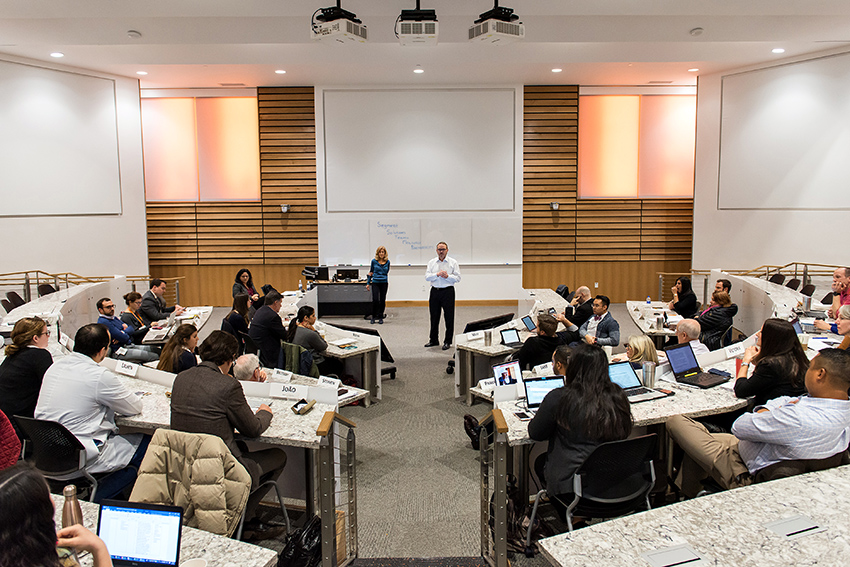A new one-year master’s program at UT seeks to spearhead change in health delivery and create high-value services in healthcare.
The Master of Science in Health Care Transformation program, a joint project between Dell Medical School and the McCombs School of Business, is currently accepting applicants for the class of 2020.
The program, which will be managed by the Value Institute for Health and Care, marks the University’s first joint degree program, said Scott Wallace, managing director of the Value Institute.
“There is a current need for a transformation in healthcare that is focused on providing services that are effective at improving the health of the patient,” Wallace said. “If you design the care around the needs of the people, their health improves significantly and the cost of that care goes down.”
The MSHCT degree curriculum consists of 11 courses, including eight lecture-based courses and three courses focusing on a major team-based project, according to the program’s website.
“There is no program in existence anywhere in the world with the focus on equipping people with skills to lead the value transformation in healthcare,” Wallace said.
Alice Andrews, director of education at the Value Institute, said the focus on value in healthcare is what makes the program so unique.
“Much of the work out there focuses on the cost side,” Andrews said. “We strongly believe it’s important to make services less expensive and efficient, but if that’s all you’re focused on, and you’re not actually delivering healthcare outcomes that matter, then you’re not actually delivering value.”
The program is primarily targeted toward two groups of students — third year Dell Medical students, who have the option of completing a master’s degree in their third year, and working business professionals across the healthcare sector, Andrews said.
Healthcare delivery requires both medical and business disciplines, so it is critical that the degree combines perspectives from both those delivering healthcare operations and those managing it, Andrews said.
“The understanding of healthcare delivery and the kinds of services that you need to provide to achieve healthcare that is focused on patient outcomes comes largely from the medical side, but also from the business side,” Andrews said.
Biology freshman Brandy Phan said combining business and medicine is an innovative way to approach healthcare.
“I think this program would benefit many students who are interested in both business and medicine and want to combine those interests to make a change in the healthcare sector,” Phan said.
Andrews said in an ideal class, the program would not only bring together doctors, nurses, physical therapists and social workers, but also people in finance, administration and government nonprofits.
“We are trying to bring together all the different perspectives in the healthcare sector so that this group will learn from each other and solve problems together,” Andrews said.





















